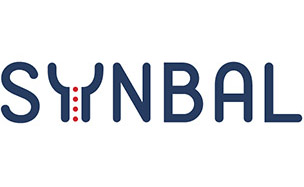BIOCENTURY | EMERGING COMPANY PROFILE
BY MARK ZIPKIN, STAFF WRITER
Synbal is tapping new genetic approaches to develop both rodents with humanized metabolisms and cell therapies for lysosomal storage diseases.
Ethan Bier, Valentino Gantz and Tsvi Goldenberg spun out Synbal Inc. from the University of California San Diego in 2015 based on tech Bier and Gantz reported in two papers that year: one in Science demonstrating a single-step CRISPR-based gene drive system propagated homozygous changes in a population of fruit flies, and another in the Proceedings of the National Academy of Sciences showing the system inserted a large self-propagating payload into mosquitoes to prevent the spread of malaria.
Bier is a professor of cell and developmental biology and Gantz is a research assistant at UCSD; both are Synbal board members. Goldenberg is a business mentor at Technion – Israel Institute of Technology’s Drive Incubator and Synbal’s chairman.
In January, a UCSD team including Valentino and Gantz published a paper in Nature confirming a similar gene drive-like system functioned in mammals. The authors showed an active genetics system, which involved breeding mice expressing Cas9 with others expressing a modified genetic element, could produce offspring with biallelic expression of a desired gene in higher numbers than typical Mendelian breeding would yield.
The work attracted $4.9 million in non-dilutive funding through an SBIR grant and a contract with an undisclosed biopharma company to create rats and mice with humanized drug metabolism systems.
The grant covers creation of a rat with nine human enzymes that CEO David Webb told BioCentury could be used to produce disease models that metabolize drugs with human-like PK/PD properties. “If you try to do that using normal Mendelian inheritance, it would take you probably 10-plus years and hundreds of thousands of animals to do. We think we can do it in 2-3 years with far fewer animals, probably closer to around 500.”
The mouse model will express a different set of undisclosed human genes, and be owned by Synbal’s partner. The rats will likely be available via a lab animal supplier partner to be determined, Webb said.
Synbal is also raising seed funding for a cell therapy program that uses another gene drive-like tech to induce biallelic wild-type gene expression in a safe-harbor locus in autologous human cells. The company plans to develop the tech for lysosomal storage disorders such as Gaucher disease, Pompe disease and mucopolysaccharidosis I (MPS I, Hurler syndrome), as well as other monogenic diseases.
Webb said Synbal’s method enables more precise delivery to the genome than gene therapies that use viral vectors, which can integrate into the genome with genotoxic or oncological consequences. Viral vectors are also limited by a payload capacity of about five kilobases. “We don’t have that limitation. We believe that we can put at least 10 kilobases into a human somatic cell.”
He said the extra capacity allows Synbal to include regulatory elements, such as switches that enhance protein production if levels are too low or kill the cell if it malfunctions, and the company is exploring these options for its cell therapies and animal models. The company did not disclose details on how it would use regulatory elements in the animals.
At least five companies have gene therapies encoded in adeno-associated viral (AAV) vectors in preclinical through Phase I/II testing for Pompe disease or MPS I.
At least one other company, Avrobio Inc., is developing cell therapies for lysosomal storage disorders. It has AVR-RD-01 in Phase II testing for Fabry disease and has submitted an IND for AVR-RD-02 for Gaucher disease. Both products are hematopoietic stem cells (HSCs) modified by lentiviral gene therapy to express the wild-type enzyme that is lacking in each disease.
COMPANY PROFILE
Synbal Inc.
San Diego, Calif.
Technology: Gene drive-like elements for animal models with humanized drug metabolism and cell therapies for lysosomal storage diseases
Disease focus: Endocrine/Metabolic
Clinical status: Preclinical
Founded: 2015 by Ethan Bier, Valentino Gantz and Tsvi Goldenberg University collaborators: None
Corporate partners: Undisclosed
Number of employees: 3
Funds raised: None
Investors: None
CEO: David Webb
Patents: None issued
COMPANIES AND INSTITUTIONS MENTIONED
Avrobio Inc. (NASDAQ:AVRO), Cambridge, Mass.
Synbal Inc., San Diego, Calif.
Technion – Israel Institute of Technology, Haifa, Israel
University of California San Diego, La Jolla, Calif.
TARGETS
Cas9 – CRISPR-associated protein 9


